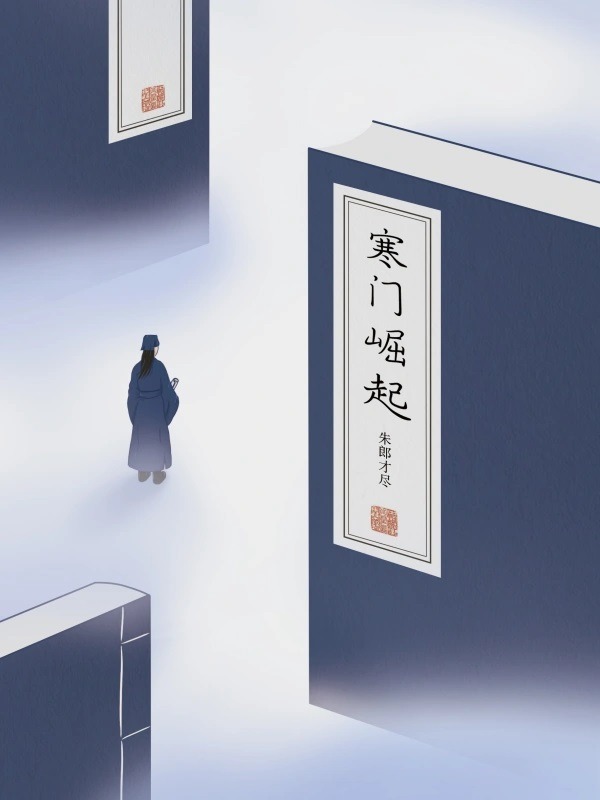
Kays Translations
Just another Isekai Lover~
Chapter 133: Confucius said
While Zhu Ping’an was tidying up and waiting for the exam papers, examinees started entering the examination hall one by one, with scholars gradually filling the rooms on both sides.
After about half an hour, a metallic sound came from the direction of Mingyuan Tower. Looking up, Zhu Ping’an saw several flags waving atop Mingyuan Tower, followed by a faint announcement from the main gate.
“Entrance complete, close the doors, lock the keys, silence the hall!”
It turned out that the metallic sound was from the cloud board being struck, and Zhu Ping’an finally realized this. At this moment, both the main gate and ceremonial gate must have been sealed.
The striking of the cloud board signified the official start of the exam. The imperial exams were strict about discipline, and there were many officers and soldiers standing guard in front of the examination hall. Any actions such as changing seats, swapping exam papers, throwing paper balls, chatting, memorizing, or anything resembling cheating would lead to severe punishment if caught. As a result, the whole examination hall became eerily quiet.
The imperial exam consisted of two parts: the main exam and a follow-up exam. Today’s exam was the main one. After the sound of the cloud board, the officers began distributing the exam papers. Along with the papers, each person also received five sheets of scrap paper.
As for the questions, just like the county or provincial exams, the questions for the imperial exam were posted on wooden boards. Several officers holding question plaques walked around the examination hall, allowing the examinees to view the questions.
However, when the officers began walking around holding the question plaques, Zhu Ping’an clearly heard a loud uproar from the surrounding area, followed by a soldier standing with a drawn sword shouting, “Quiet! If there’s any more noise, it will be treated as cheating!”
Under the soldier’s reprimand, the hall quieted down, but one could still hear some suppressed gasps from around the room.
Could the exam questions today be a bit difficult?
As Zhu Ping’an dipped his brush into the ink he had ground, he couldn’t help but think with some dark amusement, “Could the question be something like the ones in the novels I read, asking us to draw a circle and write an essay based on it?” When he had read that particular novel, he had checked the historical background and found that the top scorer had broken down the circle question with: “When a sage begins learning, everything is empty,” which was a perfect way to break down the circle. If the question was the same as that, wouldn’t he be lucky?
However, when the officer holding the question plaque came to Zhu Ping’an, and he glanced at the question, he immediately understood why everyone reacted the way they did after seeing it.
The questions were a mix of two from the Four Books and one from the Five Classics, totaling three questions.
The Five Classics question wasn’t much of a challenge. It was a fill-in-the-blank type question, similar to the ones they had done in school, except in a different format. The question involved filling in blanks in a piece of text from the classics. Since Zhu Ping’an often studied the Four Books and Five Classics, he could easily answer this question. He believed other scholars would find it similarly easy.
However, the two Four Books questions were… well, how should one put it? They were devastating.
The first question was only two characters: “Zi Yue” (Confucius said).
Just reading the first question was enough to give one a headache. “Zi Yue, Zi Yue, what did Confucius say? How is one supposed to break down this question and write an essay?”
But when Zhu Ping’an saw this question, he couldn’t help but smile. Yes, he had seen this question before, in a modern article called “An Appreciation of Ming Dynasty Essays.” The article cited this exact example and provided a standard answer.
Although this question wasn’t the one about drawing a circle, it was still familiar to him, and thus, Zhu Ping’an didn’t find himself as confused or frustrated as others. Instead, he couldn’t help but smile quietly.
Well, this question had clearly driven some of the other examinees to frustration, and they seemed to be the most affected by it. The officer holding the question plaque cast a sympathetic look at Zhu Ping’an.
Unaware that he was being sympathized with, Zhu Ping’an neatly copied the first question onto a scrap of paper in small, meticulous characters, then began looking at the second question.
The second question was much more straightforward: “The gentleman reaches upward, the petty person reaches downward.” This quote came from the Analects of Confucius.
There were three questions in total. The fill-in-the-blank question from the Five Classics was something everyone could handle, which wouldn’t make much of a difference. The real challenge lay in the two Four Books questions. The first question certainly left people confused and unsure how to approach it, but thankfully, the second one was more manageable. If it had been any more difficult, even the soldiers standing guard wouldn’t have been able to keep the exam hall quiet.
Compared to others racking their brains and feeling overwhelmed, Zhu Ping’an was much more relaxed and casual. He picked up his brush and began drafting his response on the scratch paper.
The first question was titled “Zi Yue” (Confucius said), which is considered a minor question in the imperial examination system. Major questions typically involve multiple sentences or entire chapters, while minor questions are based on a single sentence or even just a few characters from a sentence. The first question, “Zi Yue,” is an example of a minor question with only two characters.
Breaking down the question is the most crucial aspect of writing a Baguwen (Eight-legged essay). Sometimes, lazy examiners only judge the essay by its initial breakdown. In simple terms, breaking down the question means analyzing the topic and determining the main idea of the essay. The Baguwen has strict rules for this process: it must be done in only two sentences. Occasionally, three sentences are allowed, but those are usually long sentences with pauses, making them appear like three. The goal is to summarize and explain the question without stating it directly. This step is both the beginning and the essence of the Baguwen. A well-crafted breakdown can make the process much smoother.
“A commoner can become a teacher for generations; a single word can set the standard for the world.”
This was the two-sentence breakdown Zhu Ping’an wrote on his scratch paper. It is the most standard breakdown for “Zi Yue.” The phrase “teacher for generations” refers to Zi (Confucius), while “standard for the world” refers to Yue (said). Together, they form “Zi Yue,” providing a clear and authoritative explanation.
After breaking down the question, the next step is linking it to the main idea. During his modern life, Zhu Ping’an had only studied the question and its breakdown but had not encountered the subsequent parts, such as linking the topic. However, having undergone systematic training in the Ming Dynasty for eight years, he found that once the question was broken down, the following steps—linking the topic, opening the discussion, writing the four parallels of Baguwen, and concluding—were relatively straightforward. After some brief contemplation, he picked up his brush and began writing neatly on the scratch paper.
With his elegant and standard small regular script, Zhu Ping’an completed the first question’s Baguwen in less than an hour.
Just as he finished the first question and set down his brush, three drumbeats sounded from the Mingyuan Tower. Immediately afterward, a nearby constable announced expressionlessly, “You may now drink tea or use the restroom at your convenience. No noise is allowed. Violators will be treated as cheaters.”
This marked the intermission for tea, water, and restroom breaks.
At the entrance to the examination cubicles, there was a water vat for drinking. If a candidate needed water, they had to signal the supervising constable and could not speak.
At the end of the examination hall, there was a latrine with a bucket inside, which served as the toilet.
At that moment, Zhu Ping’an didn’t feel thirsty, but he did sense some discomfort in his lower abdomen. He stood up and indicated his need to use the restroom. The supervising constable confirmed the latrine was currently unoccupied and granted his request, handing Zhu Ping’an a token.
Zhu Ping’an accepted the token with both hands and examined it. The token had writing on both sides—one side read “Quiet” and the other read “Relieving oneself”. The phrase “relieving oneself” likely originated from this practice.
Holding the token against his chest, Zhu Ping’an was finally allowed to leave his cramped cubicle to use the restroom. He carefully made his way out, wary of accidentally knocking over any ink, paper, or brushes.
As he exited, a constable followed him closely, escorting him to the end of the hall. It was truly a close-following, step-by-step escort. Zhu Ping’an understood that this was to prevent candidates from cheating during the break.
However, at that moment, he felt as if he were receiving some kind of VIP treatment.
